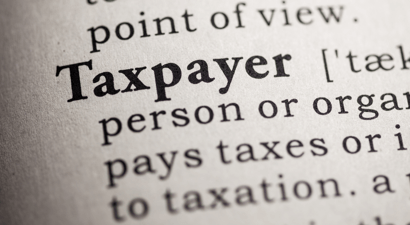Investment as a Scheme of Profit-Making v Investment as Capital
Investment as a Scheme of Profit-Making v Investment as Capital
In the recent case of CSARS v Capstone 556 (Pty) Ltd, the Supreme Court of Appeal (“SCA”) had to determine inter alia whether an investment fell under gross income on the one hand, or capital, on the other. In reaching the SCA, the case had already been heard in Western Cape Tax Court and a full bench of the Western Cape High Court.
One of the key findings of this case was that if the intention of an investment is to invest in a scheme of profit making, then the investment will fall under gross income and be taxed accordingly. If, however, the intention is to invest the money as capital, then the investment is only taxed under Capital Gains Tax. The tax consequences if the proceeds are capital are far less severe than if they are revenue.
A simplified summary of the facts of the case is that the taxpayer invested in Profurn Ltd as part of a ‘business rescue operation’. Profurn Ltd recovered substantially faster than anticipated under the new management and after holding the shares for only five months they were advised how to dispose of the shares to institutional investors. The taxpayer disclosed the amount in its 2005 return as a capital receipt; however, SARS re-assessed the amount as being revenue in nature and issued an additional assessment for R200 million. SARS contended that the amount from the sale of shares was revenue and not capital in nature, due to the fact that the taxpayer had at the time of acquisition not intended to hold the shares as capital assets or for earning dividends, but rather to dispose of them for short term profit in a scheme of profit making. SARS’ contention was based on the fact that the shares were only held for five months, were financed from external sources and dividends payable on the shares were earmarked to repay the short term shareholder loan. The judgment states that:
“The essential submission for the Commissioner was that from the outset, that is when the transaction was first contemplated in early to mid-2002, the intention was to acquire the shares for resale at a profit, that that intention never changed and that the shares were acquired as trading stock. The argument for the Commissioner therefore correctly recognised that if this were shown not to be the case, the proceeds would be capital.”
The taxpayer argued that they never expected to see a return on investment so quickly and predicted their investment to be invested for years, and even then they were unsure of the outcome of their investment. The taxpayer contended that there was no way for them predict either the fast turnaround of the company or the reasons for the turnaround, namely the economic upturn, the strengthening of the Rand and the extreme effectiveness of their turnaround strategies.
The Tax Court found that the proceeds were revenue in nature, however, the High Court found that the taxpayer’s intention, both at the time of entering into the transaction which culminated in its acquisition of the listed shares, until and as well as at the time of the decision to sell, was in line with an intention to hold the shares on capital account.
To settle this dispute, the SCA inter alia looked at the intention of the taxpayer when making this investment and found that the taxpayer’s intention was indeed to invest the money as capital, for they did not expect the sudden profitable outcome, nor could they predict the causes thereof. The taxpayer’s investment, therefore, was only liable to be taxed under Capital Gains Tax. The SCA dismissed the appeal by SARS, and in his judgment, C H G van der Merwe AJA stated that in his view it was clear from the evidence that the first and primary purpose of the acquisition of the shares was to rescue a major business in the retail furniture industry by long term investment of capital. The SCA went onto find that this investment involved a commitment of capital for an indeterminate period involving considerable risk and only a very uncertain prospect of a return. There wasn't any certainty that the business would be rescued, and if it was, there were many options available.
The SCA found that the intention of the taxpayer was consistent with an investment of a capital nature, which, as it turned out, just so happened to be realised sooner than initially expected due to skilled management and favourable economic circumstances. It was not a purchase of shares as trading stock for resale at a profit.





